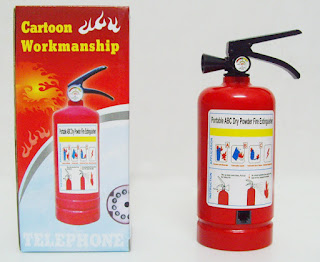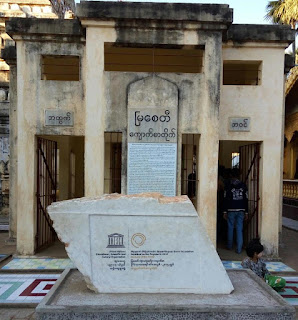English for Hotel and Catering Industry (Unit 19 - Health and safety at work)
- Posted by zar ni (My Way!) on January 21, 2013 at 12:13
- Health and Safety at work
ဒီသင္ခန္းစာမွာေတာ့
အလုပ္ခြင္က်န္းမာေရးနဲ႔ေဘးကင္းလံုျခံဳေရးအေၾကာင္းကို နာမ၀ိေသသန၊ ႀကိယာ၀ိေသသနေတြနဲ႔တြဲအသံုးျပဳပံုကိုေလ့လာၾကရပါမယ္။
Your health and safety is important
to us (သင္၏က်န္းမာေရးႏွင့္ေဘးကင္းလံုၿခံဳမႈသည္ကၽြႏ္ုပ္တို႔အတြက္အေရးႀကီးပါသည္။)
Manager: I’d like to say a few words on hotel’s health and safety
regulations. Now, this is a serious subject. So please listen carefully.
Firstly, Fire. The hotel has regular fire drills. So find out where the
assembly points are for your area. We test the alarm regularly. You must keep
the fire exits free at all times. So, please check them carefully. Secondly,
accidents, we must keep the hotel clean and tidy at all times as guests could
trip on torn carpets or slip on dirty floor. If you see an accident, find the
first aider immediately. We have several members of staff who are trained first
aider. And their names are at the reception. Please read the list carefully.
Thirdly, the kitchen are, many cleaning products are poisonous. So these must
be marked clearly and kept away from food. When lifting heavy objects, bend
your knees and don’t strain your back. And finally, when using the food slicer
all staff must put the guard in place. Now, are there any questions?
ေလ့လာထားရမည့္ expression မ်ား
- Please, listen carefully. ေသေသခ်ာခ်ာနားေထာင္ေပးပါ။
- You must keep the fire exits clear. မီးေဘးအႏၱရာယ္အေရးေပၚထြက္ေပါက္ေတြကိုရွင္းထားပါ။
- If you see an accident, find a first aider immediately. မေတာ္တဆျဖစ္တာတစ္ခုခုကိုေတြ႕တာနဲ႔ ေရွးဦးသူနာျပဳတတ္သူကိုခ်က္ခ်င္းရွာပါ။
- Please, read the list carefully. စာရင္းကိုေသေသခ်ာခ်ာဖတ္ပါ။
- These (products) must be marked clearly. ဒီပစၥည္းေတြကိုထင္ထင္ရွားရွားအမွတ္အသားလုပ္ထားရမယ္။
ေလ့လာထားရမည့္ေ၀ါဟာရမ်ား
- announcement ေၾကညာခ်က္
- fire alarm မီးသတ္
- knee strain (n) ဒူးမ်က္ျခင္း၊ အေၾကာတင္ျခင္း
- assembly စုေ၀းသည္။
- point ေနရာ။ အမွတ္အသား
- fire brigade မီးသတ္တပ္ဖြဲ႕
- poisonous အဆိပ္အေတာက္ျဖစ္ေသာ
- subject အေၾကာင္းအရာ
- back ေက်ာကုန္း
- fire drill မီးၿငိမ္းသတ္ျခင္ႀကိဳတင္ေလ့က်င့္ခန္း၊ ဇာတ္တိုက္ျခင္း
- regular/ly မွန္မွန္
- test စစ္ေဆးျခင္း
- drill ေလ့က်င့္ခန္း
- bend (v) ကုန္းသည္။ ေကြးသည္။ ညႊတ္သည္။
- fire extinguisher မီးသတ္ေဆးဘူး
- roll call အမည္စာရင္းတိုက္စစ္သည္။
- trained ေလ့က်င့္ေပးထားေသာ
- emergency အေရးေပၚ
- food slicer အသားလႊာစက္
- serious အေလးအနက္ထားေသာ၊ အေရးႀကီးေသာ
- trip ခလုတ္တိုက္မိသည္။
- evacuate ေဘးအႏၱရာယ္လြတ္ရာသို႔တိမ္းေရွာင္သည္။
- guard အကာအကြယ္
ေလ့လာထားရမည့္၀ါက်တည္ေဆာက္ပံုမ်ား
1. Adjectives and adverbs
(နာမ၀ိေသသနႏွင့္၀ိဘတ္မ်ား)
Adjectives describe nouns; adverbs
describe verbs.
Examples:
Health and safety is a very serious subject.(adjective)
We take health and safety very
seriously. (adverb)
There are regular fire drills. (adjective)
We have fire drills regularly.(adverb)
irregular adverbs
ေတြကိုေလ့လာထားရပါမယ္။
good/well, hard/hard, fast/fast,
late/late
Adjectives ေတြဟာ နာမ္ (သို႔မဟုတ္)
နာမ္စားကိုအထူးျပဳပါတယ္။ သူတို႔အထူးျပဳတဲ့စကားလံုးရဲ႕အေရွ႕၊ အေနာက္ႏွစ္
တစ္ေနရာရာမွာေနႏိုင္ပါတယ္။
This is a cute puppy.
This puppy is cute.
Adverbs ကေတာ့ ႀကိယာ၊ နာမ္မ၀ိေသသနနဲ႔
၀ိဘတ္ေတြကိုအထူးျပဳပါတယ္။ စကားလံုးတစ္လံုးဟာ how, when, where စတဲ့ေမးခြန္းေတြကိုေျဖဆိုမယ္ဆိုရင္
၀ိဘတ္လို႔သတ္မွတ္ႏိုင္ပါတယ္။
၀ိဘတ္ေတြရဲ႕အသံုးကေတာ့ နည္းနည္း႐ႈပ္ေထြးပါတယ္။ ေအာက္ပါအတုိင္းအၾကမ္းဖ်င္းမွတ္ထားႏိုင္ပါတယ္။
2. Adverb of Manner
(e.g.: slowly, carefully, awfully)
ေအာက္ပါ၀ိဘတ္ေတြကို direct object ရဲ႕ေနာက္မွာထားပါတယ္။ direct object မရွိတဲ့အခါ verb ရဲ႕ေနာက္မွာထားပါတယ္။
subject
|
verb(s)
|
direct
object
|
adverb
|
He
|
drove
|
the car
|
carefully.
|
He
|
drove
|
carefully.
|
3. Adverbs of Place
(e.g.: here, there, behind, above)
သူတို႔ေတြကိုလည္း direct object ရဲ႕ေနာက္မွာထားပါတယ္။
subject
|
verb(s)
|
direct
object
|
adverb
|
I
|
didn't see
|
him
|
here.
|
He
|
stayed
|
behind.
|
4. Adverbs of Time
(e.g.: recently, now, then,
yesterday)
အခ်ိန္ျပ၀ိဘတ္ေတြကိုေတာ့ ၀ါက်ေနာက္ဆံုးမွာထားပါတယ္။
subject
|
verb(s)
|
indirect
object
|
direct object
|
time
|
I
|
will tell
|
you
|
the story
|
tomorrow.
|
အခိ်န္ကိုအေလးအနက္မထားခ်င္တဲ့အခါ ၀ါက်ေရွ႕မွာလည္းတင္ေျပာႏိုင္ပါတယ္။
time
|
subject
|
verb(s)
|
indirect object
|
direct
object
|
Tomorrow
|
I
|
will tell
|
you
|
the story.
|
5. Adverbs of Frequency
(e.g.: always, never, seldom,
usually)
ထပ္ႀကိမ္ျပ၀ိဘတ္ေတြကိုေတာ့ main verb ရဲ႕ေရွ႕မွာ၊ အကယ္၍ main verb သည္ ‘be’ ျဖစ္မယ္၊ အကူႀကိယာ auxiliary verb မရွိဘူးဆိုရင္ ‘be’ ရဲ႕ေနာက္မွာထားပါတယ္။ အကူႀကိယာ auxiliary verb ရွိမယ္ဆိုရင္ေတာ့ ‘be’ ရဲ႕ေရွ႕မွာထားပါတယ္။
subject
|
auxiliary/be
|
adverb
|
main
verb
|
object,
place or time
|
I
|
often
|
go swimming
|
in the evenings.
|
|
He
|
doesn't
|
always
|
play
|
tennis.
|
We
|
are
|
usually
|
here in summer.
|
|
I
|
have
|
never
|
been
|
abroad.
|
ေလ့က်င့္ခန္း
၁။ ေအာက္ပါတို႔ကို သင့္ေတာ္ရာ
adjective သို႔မဟုတ္ adverb ျဖင့္ျဖည့္ပါ။
quiet hard expensive
carefully
fresh late
politely serious
1. We serve ............ bread and
rolls.
2. Please check the safety
regulations ............
3. That’s a .......... .. problem.
4. I’d like a . . . . . . . . . . ..
room next to the garden.
5. She’s an excellent commis chef
and works . . . . . . .
6. The Regal is a very .......... ..
hotel.
7. The group from Norway arrived
very . . . . . . . . . . .
8. Front desk staff must speak ..........
.. to guests.
၂။ ေအာက္ပါ၀ါက်တို႔ကိုအမွားျပင္ပါ။
Please close your door
Please close your door quietly late
at night.
1. Room 356 would like their bill immediate.
2. The chef makes freshly bread
every morning.
3. The staff work very hardly in the
busy season.
4. The Coral Beach is a well hotel.
5. Bruno works very fastly in the
kitchen.
6. Staff must speak polite to
guests.
7. Jo was very patiently with the
elderly guests.
8. He checked the guest list
careful.
9. The fire alarms are tested
regular.
၃။ ေအာက္ပါ၀ါက်တို႔ကို ျပန္ေရးပါ။
Rewrite the sentences using adverbs.
1. Stefano is a very quick worker.
Stefano works
very quickly.
2. He’s a good cook.
3. She’s a careful driver.
4. He’s a slow worker.
5. We have a regular test drill.
6. He gave a serious talk about
health and safety.
7. Reception staff always give
polite answers to guests.
8. The cashier asked the man for
immediate payment.
Answers:
၁။
1. fresh, 2. carefully, 3. serious, 4. quiet, 5. hard, 6. expensive, 7. late, 8. politely
1. fresh, 2. carefully, 3. serious, 4. quiet, 5. hard, 6. expensive, 7. late, 8. politely
၂။
1.immediately, 2. fresh, 3. hard, 4. good, 5. fast, 6. politely, 7. patient, 8. carefully, 9. regularly
၃။
2. He cooks very well.
3. She drives carefully.
4. He works slowly.
5. We test the drill regularly.
6. He talks about health and safety
seriously.
7. Reception staff always answers
politely to guests.
8. The cashier asked the man to pay
immediately.
ဇာနည္(MyWay!)
Unit(18)
https://htooaungwintt.blogspot.com/2015/12/english-for-hotel-and-catering_13.html
Unit(20)
https://htooaungwintt.blogspot.com/2015/12/english-for-hotel-and-catering-industry_15.html



Comments
Post a Comment